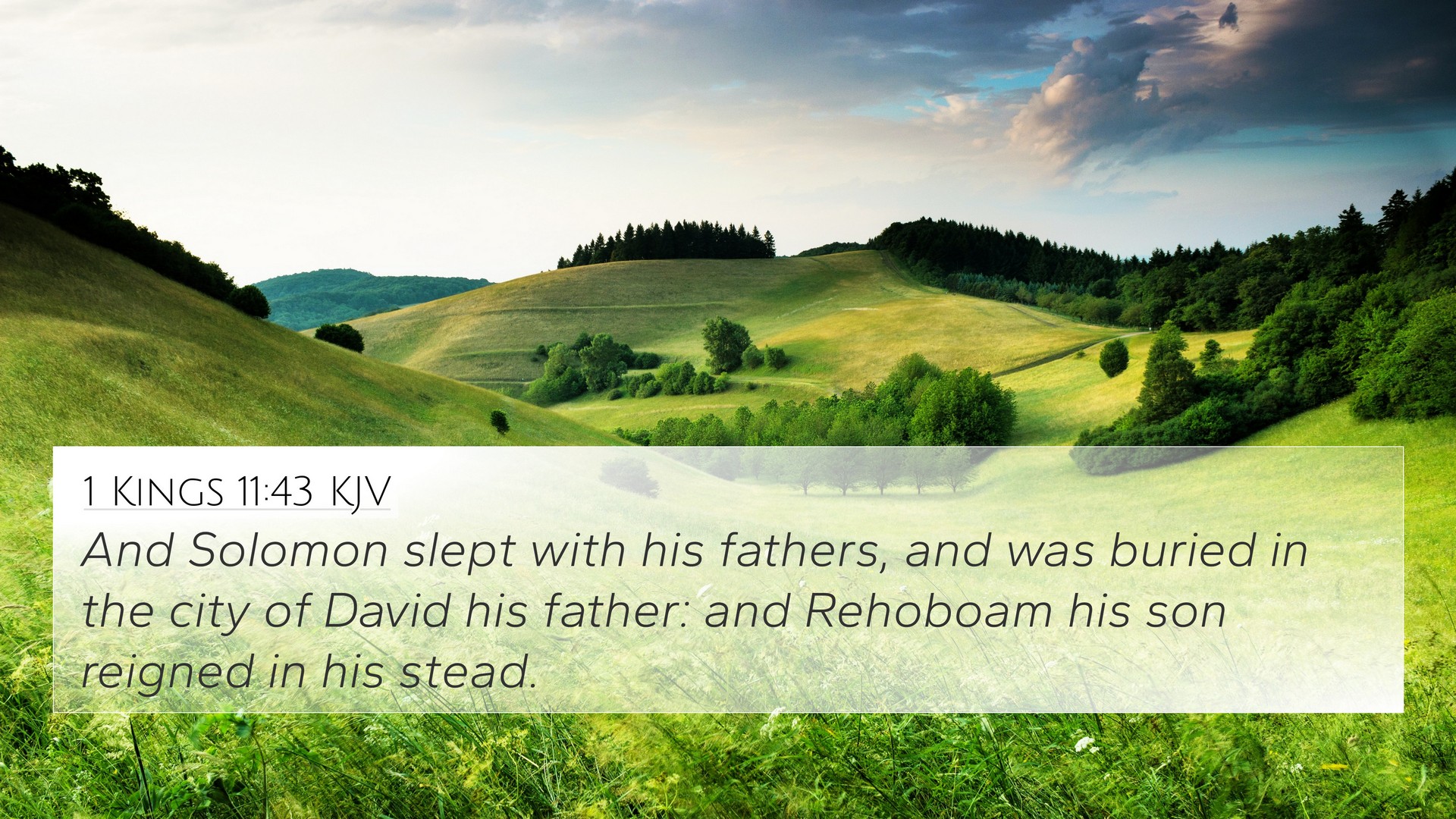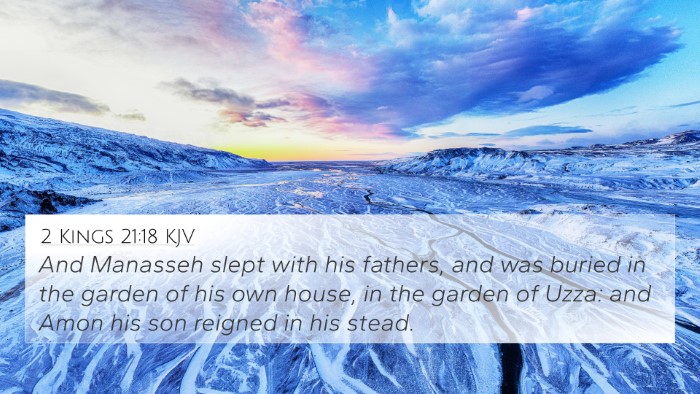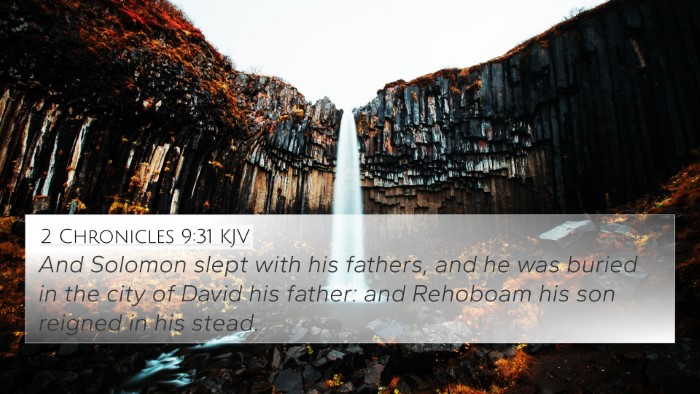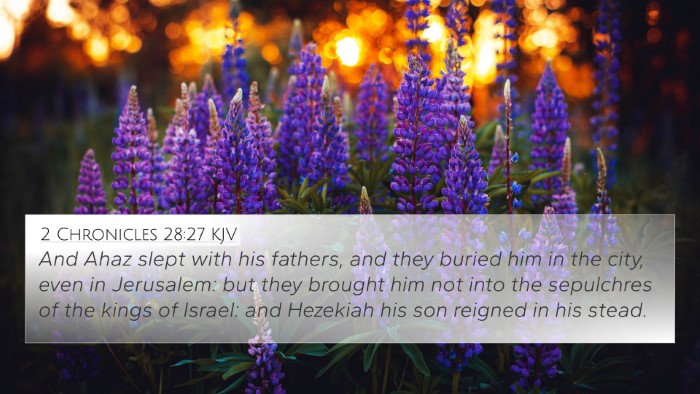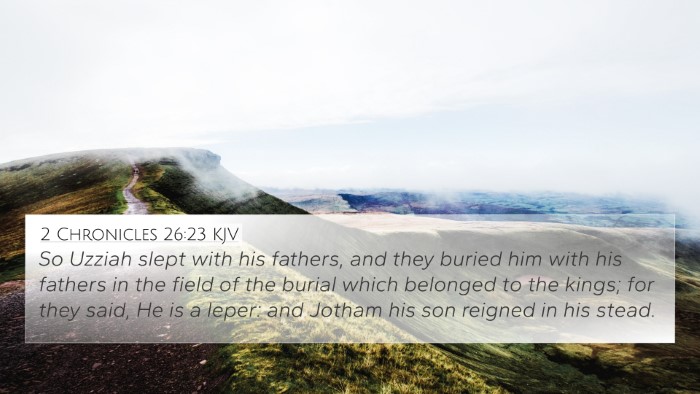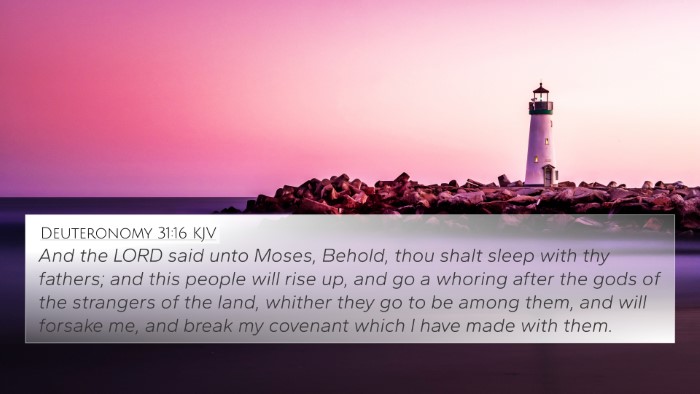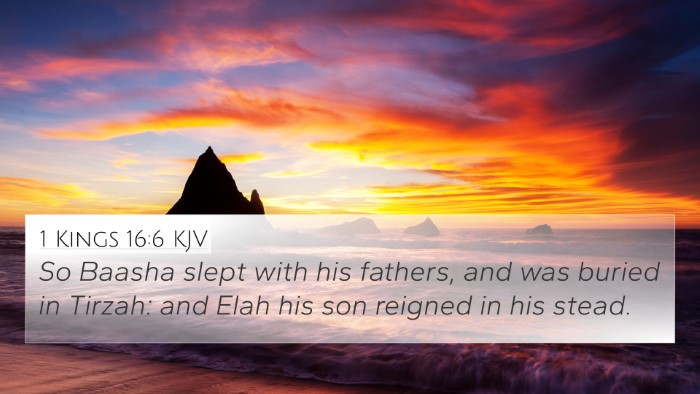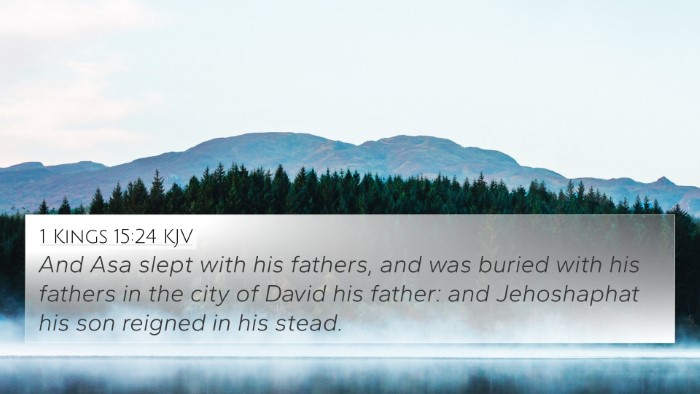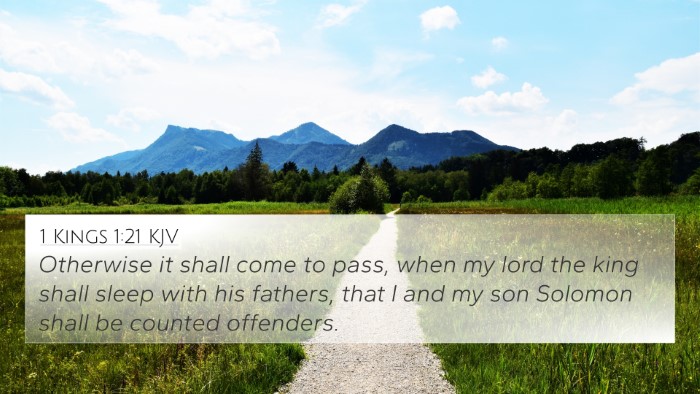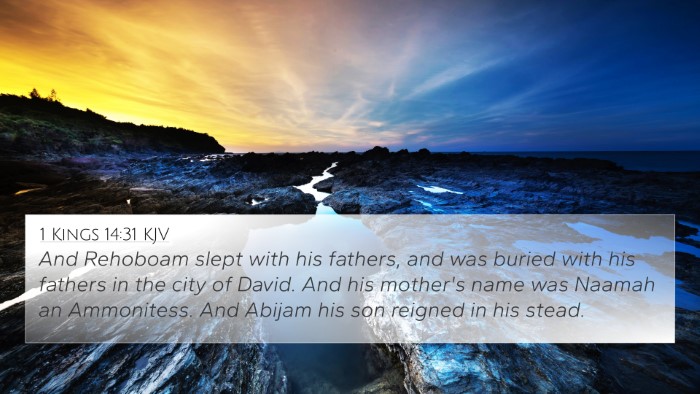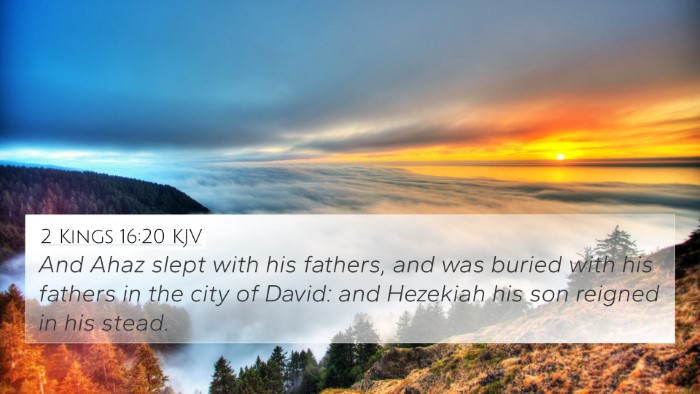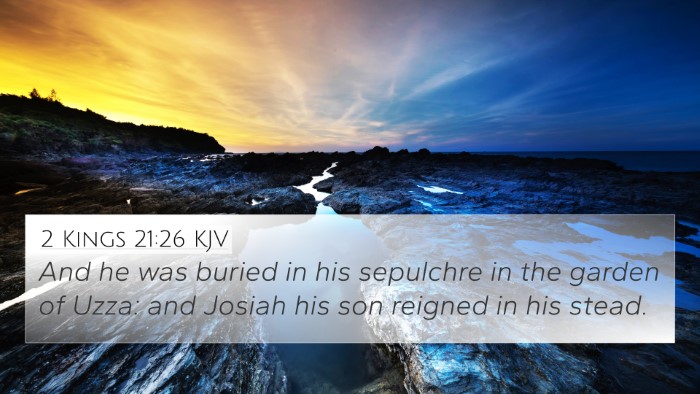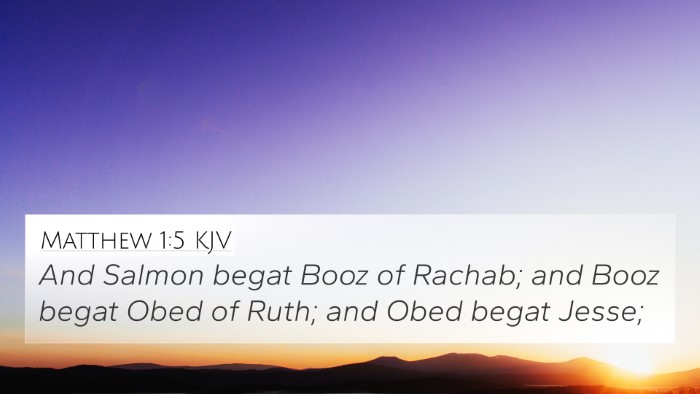Understanding 1 Kings 11:43
Verse: "And Solomon slept with his fathers, and was buried in the city of David. And Rehoboam his son reigned in his stead."
Summary of Meaning
This verse concludes the account of King Solomon's reign, marking his death and the transition of power to his son Rehoboam. It signifies the end of an era characterized by great wisdom, wealth, and building projects, including the Temple in Jerusalem, and a shift toward impending challenges.
Insights from Public Domain Commentaries
Matthew Henry's Commentary
Matthew Henry emphasizes the finality of Solomon's reign and the naturalness of death as part of the divine order. He reflects on Solomon's greatness and advises readers to glean lessons from his life. The commentary encourages humility, suggesting that even the most exalted can face judgment and must eventually yield to death.
Albert Barnes' Notes on the Bible
Barnes notes the significance of Solomon's burial in the city of David, suggesting a connection to the heritage of God's chosen line. He emphasizes the importance of Rehoboam's ascension and the responsibilities that come with leadership, particularly after Solomon's impressive but ultimately flawed reign.
Adam Clarke's Commentary
Clarke highlights the transition from Solomon to Rehoboam, interpreting it as a shift that could bring different governance and challenges. He points out that the people of Israel would soon face lessons in loyalty and authority, underlining the importance of wise leadership.
Key Themes and Reflections
- Transition of Leadership: The verse underscores the continual cycle of leadership in Israel.
- Divine Judgment: Reflects God's governance over the affairs of men, indicating that earthly reigns end while divine purposes continue.
- Heritage and Legacy: The importance of Solomon's legacy impacts Rehoboam's reign.
- Consequences of Actions: Solomon’s life choices set the stage for challenges faced by Rehoboam.
Cross References
This verse is connected to several other scriptures which provide context and depth to its meaning:
- 1 Kings 2:10: Solomon’s death is foretold as part of the succession narrative.
- 2 Chronicles 9:31: Reaffirms Solomon's burial and the continuity of the Davidic line.
- 1 Kings 12:1-3: Details the circumstances surrounding Rehoboam's ascension and the people's response.
- 1 Kings 3:12: Illustrates the wisdom given to Solomon, contrasting it with Rehoboam's decisions.
- 1 Chronicles 28:5: Emphasizes God's promise regarding the continuance of David's lineage.
- 2 Samuel 7:16: God’s covenant with David about the lasting nature of his house.
- Proverbs 4:7: The significance of wisdom echoes throughout Solomon's life and reflects on Rehoboam’s struggles.
Comparative Insights
In considering the connections between this verse and others, various themes emerge:
- The importance of wisdom in leadership—linked to the wisdom Solomon was known for and the consequent folly of Rehoboam.
- The theme of legacy—how the actions of one generation influence the next, evident in the transition from Solomon to Rehoboam.
- The continuity of God’s plan—despite human failures and transitions, God’s purposes and promises continue through generations.
Conclusion
Studying 1 Kings 11:43 reminds us of the transient nature of earthly power and the enduring significance of our choices and legacies. Through cross-referencing this passage with others, one can draw connections that illuminate the narratives of both the Old and New Testaments, revealing deeper truths about God's governance and the impact of leadership.
Tools for Exploring Cross-References
For those looking to delve deeper into Bible verse connections, various tools can enhance your study:
- Bible Concordance
- Bible Cross-Reference Guide
- Cross-Reference Bible Study Techniques
- Bible Chain References
- Comprehensive Bible Reference Resources
